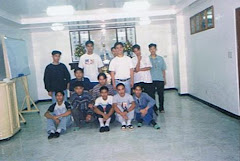This is his Uchcha Rashi (exaltation sign) and he is powerful and happy when transiting it. Saturn is considered Paramochcha for the first 20º of Libra
Saturn is the channel that relentlessly brings past life Karma to this life. He is the stern judge who shows no mercy. Tula is a Rashi that has the weighing balance as its symbol. When the planet of judgment passes through the sign of balance, it always means that scales will be balanced and justice delivered in full.
Jupiter at this point of time is placed in Aries and aspects Saturn with his seventh house aspect. Jupiter represents the law both divine and earthly. Saturn too aspects Jupiter with his seventh house aspect. The mutual aspect of two major slow moving planets – one representing the law and the other judgment – signifies that the judgment day for the humanity has arrived. In the times to come the justice will be delivered and the wrongdoers punished. Since Saturn signifies imprisonment, it is certain that the corrupt and the crooked will be put away for good.
According to the tenets of Hindu astrology, the transit effects of planets are seen from the Moon. These results are given below and are both good and bad for different Chandra Lagna (Lunar ascendant).
Saturn is primarily a planet of separation and causes a chasm between a person and the significations of the house or house lord which comes under his influence. He gives favorable results in the third, sixth and eleventh house from the Moon. In other houses the results are either neutral or unfavorable. Of the unfavorable results, those pertaining to Saturn’s transit through the fifth and the eighth house are really misery producing.
Passing through the fifth house from Moon, Saturn causes a separation between the native and the happiness on account of children. It can be a physical separation or one caused by disease, injury etc. The third aspect of Saturn falls on the seventh house and disturbs the relationship with the life partner or spouse. The seventh aspect falls on the eleventh house of financial gains and reduces the income. Finally the tenth house aspect falls on the second house of wealth and causes the saved money to be spent. Credit cards get maxed and one is hard put to meet the expenses.
When Saturn passes through the eighth house of longevity, and Saturn is not the lord of this house, there is usually a high possibility of an accident or illness. The third aspect of Saturn falls on the tenth house and curtails professional success. The seventh house aspect falls on the second house of wealth and causes bank balance to be slowly reduced to almost nothing. Finally the tenth aspect falls on the fifth house and causes unhappiness on account of children. Because these two transits are so problematical they are called ‘Kantak Shani’ (Kantak=A thorn, Shani=Saturn)







